Retro Replay Review
Gameplay
From the moment you launch Eureka!, it’s clear that the game’s core mechanical hook lies in its blend of fast-paced arcade sequences and methodical graphic adventure exploration. Every stage begins with a high-energy mini-game where you race to collect flashing objects scattered across the level. Success here directly affects your vigour meter, which serves as a dynamic stamina gauge for the subsequent adventure—an innovative system that keeps players invested in even the opening seconds of each chapter.
(HEY YOU!! We hope you enjoy! We try not to run ads. So basically, this is a very expensive hobby running this site. Please consider joining us for updates, forums, and more. Network w/ us to make some cash or friends while retro gaming, and you can win some free retro games for posting. Okay, carry on 👍)
Once you transition into the main adventure, the pace shifts dramatically. You’re dropped into richly detailed environments set in Prehistoric Europe, Roman Italy, Arthurian Britain, Wartime Germany, or the Modern Caribbean, all with the singular goal of recovering one of the five missing talisman fragments. A point-and-click interface allows you to interact with the world, solve contextual puzzles, and scout for hidden items. The vigour system introduces an extra layer of strategy—if you skimp on collecting energy in the arcade prelude, combat encounters can become punishingly difficult.
Combat is a recurring element in every era, offering both reactive and proactive choices. At times, you must fight off sudden attacks; other times you can decide whether to engage or evade dangerous foes. Weapons and protective items pepper each chapter, but their effectiveness is always tied to your vigour reserves. This interdependence between arcade success and adventure prowess creates a cohesive loop that rewards careful planning as much as quick reflexes.
The difficulty curve in Eureka! can be uneven: early levels feel forgiving as you learn the ropes, but mid-game chapters in Wartime Germany and Arthurian Britain ratchet up both puzzle complexity and enemy aggression. That said, the game rarely feels unfair—each failure is a lesson in resource management. For completionists, revisiting earlier chapters to maximize vigour and uncover every hidden collectible offers satisfying replay value.
Graphics
Eureka! adopts a nostalgic, hand-painted art style reminiscent of classic point-and-click adventures. Backgrounds in each historical era burst with color and fine detail, from moss-covered Neolithic megaliths to the cobblestone streets of Rome. Character sprites are slightly more simplistic but still convey personality through expressive poses and animations.
The arcade segments boast crisp pixel art that pops with vibrant hues and dynamic lighting effects. Collectibles flash convincingly to catch your eye, and the on-screen UI for the minimap and vigour meter is both clear and unobtrusive. Transitions between these high-octane levels and the slower-paced exploration zones are smooth, maintaining visual consistency throughout.
Cutscene illustrations occasionally break away from the in-game graphics, offering painted panoramas that highlight key narrative moments. These interludes—such as the moment Dr. Abdul Majid deciphers the time-travel trajectory of a talisman shard—are beautifully rendered and punctuate the gameplay with cinematic flair. While they’re brief, they underscore the game’s storytelling ambition and help immerse players into the temporal shifts.
That said, texture resolution can feel dated on modern displays, and character animations sometimes loop a little too rapidly. However, these minor technical quirks are forgivable given the overall artistic vision. The game’s consistent visual language makes exploring each era a genuine pleasure and enhances the thrill of discovering hidden secrets.
Story
At its heart, Eureka! is driven by an ingenious premise: an ancient talisman broken under SHIVA Fusion Project lasers and scattered through time. You take on the role of an intrepid adventurer enlisted by Dr. Abdul Majid, the brilliant physicist who traced the missing pieces to five distinct historical periods. This time-travel conceit adds a layer of intrigue, as each recovered fragment offers fresh revelations about the talisman’s origin and powers.
Each chapter weaves historical lore with fictional twists. In Prehistoric Europe, you unravel tribal superstitions tied to lunar deities; in Roman Italy, you navigate political intrigue that threatens to conceal a talisman shard forever. Arthurian Britain incorporates legendary knights and a mystical forest, while Wartime Germany brings high stakes espionage into the mix. The Modern Caribbean level shifts gears again, mixing beachside exploration with clandestine research labs. These diverse backdrops keep the narrative from ever feeling stale.
Puzzle design often ties directly into local lore, requiring you to interpret ancient runes, decode Latin inscriptions, or assemble makeshift tools from period-appropriate materials. Such thematic puzzles not only reinforce the setting but also deliver satisfying “aha!” moments when you realize how a historical detail fits the solution. Dialogues with NPCs, though occasionally expository, help flesh out each era and offer leads on where the next shard may lie hidden.
While the overarching plot is straightforward—find eight pieces of the shattered talisman—the episodic structure allows each era to function as a mini-adventure with its own narrative arc. By the climax of the Caribbean chapter, you’ll feel a genuine pull to see all fragments united once and for all, making the final revelations all the more rewarding.
Overall Experience
Eureka! manages to balance two genres—arcade action and graphic adventure—in a way that feels both nostalgic and fresh. The vigour mechanic serves as a clever bridge between these modes, ensuring that your skill in one directly impacts your chances in the other. This cohesive loop provides a rhythm that’s easy to get hooked on, whether you’re sprinting to catch glowing orbs or deciphering cryptic puzzle clues.
The game’s historical settings are its greatest strength, offering a globe-trotting adventure that continually surprises. Though individual levels can vary in pacing, the overall journey is engaging, bolstered by a consistently high production value in art and sound design. The occasional technical hiccup—such as choppy animations on high-demand scenes—barely detracts from the immersive world-building.
Replayability stems not only from the desire to perfect your vigour score in each arcade segment but also from uncovering every hidden collectible and puzzle branch during the adventure phases. For players who relish exploration and don’t mind a bit of trial and error, Eureka! delivers hours of rewarding gameplay.
Ultimately, Eureka! is a standout title for fans of retro-inspired graphic adventures and those looking for a unique twist on time-travel storytelling. Its blend of quick-fire action, cerebral puzzles, and richly detailed historical backdrops makes it a memorable journey through the ages—one that both hardcore adventure gamers and curious newcomers can wholeheartedly enjoy.
 Retro Replay Retro Replay gaming reviews, news, emulation, geek stuff and more!
Retro Replay Retro Replay gaming reviews, news, emulation, geek stuff and more!
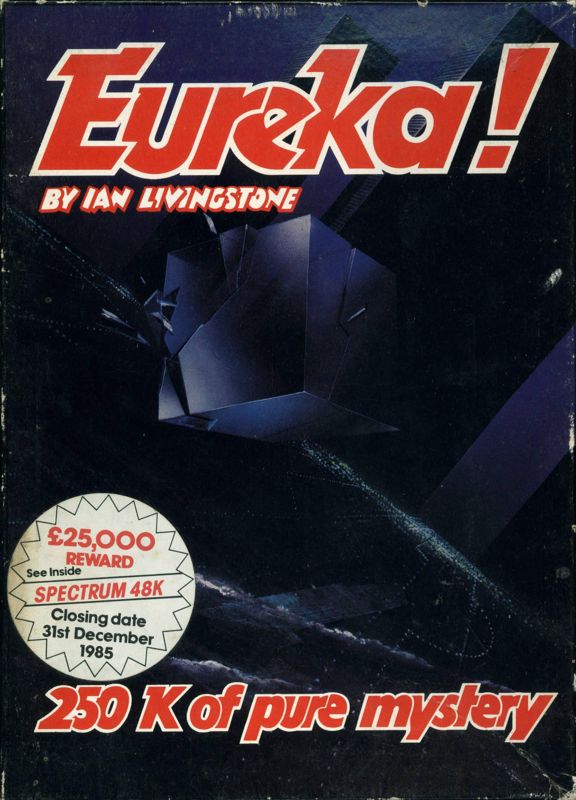
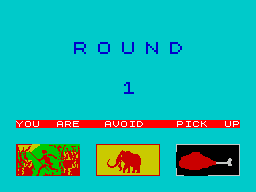
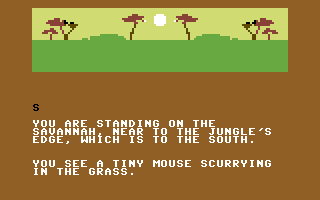
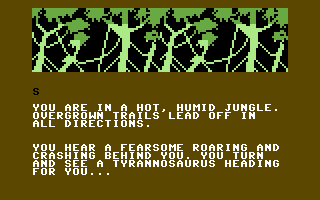
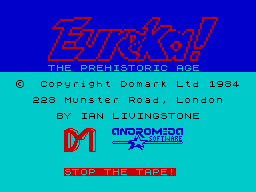
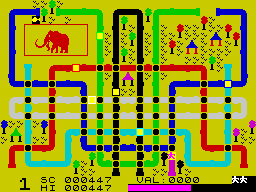
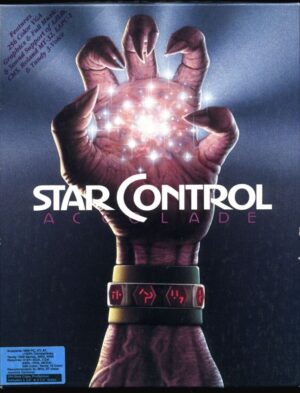


Reviews
There are no reviews yet.